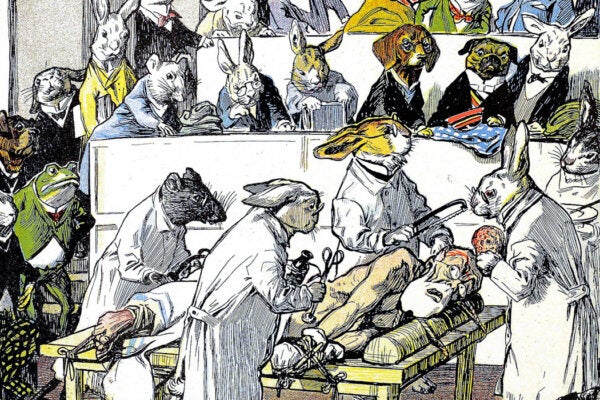Performing Forensics: Doctors Becoming Expert Witnesses
Doctors in skeptical Scotland had to persuade the courts to listen to them, in part because of the historical animosity between the professions of law and medicine.
The Dangers of Animal Experimentation—for Doctors
Nineteenth-century opponents of vivisection warned that the practice could make researchers and physicians callous toward all living creatures.
Why Not Just Be a Nurse?
To be taken seriously as physicians, women doctors in nineteenth-century Britain felt the need to distinguish themselves from others of their gender.
Putting an End to Obscene Quackery
When medical professionals joined anti-vice campaigners to censor publications about sex in the 1800s, they found themselves wielding a double-edged sword.
How Physicians Became Scientists
The introduction of formal peer review to journals aided medical doctors in their quest to bring more scientific rigor to their field.
The Surgeons Who Said No to Gloves
In the late 1800s, doctors in German-speaking countries were having trouble agreeing on one simple thing: whether to wear gloves during surgery.
How Doctors Make End-of-Life Choices
Many people facing the end of their life receive treatments that ultimately have no benefit. A team of researchers set out to find out why.
The X-ray Craze of 1896
For many science-obsessed Victorians, X-rays were not just a fun novelty, but a potential miracle cure.
Bioethics: Key Concepts and Research
Two experts in bioethics have curated a reading list of over 20 JSTOR sources on selected issues like: gene-editing, research and treatment, reproduction, disability, genetics, genealogy and race.
The Healthcare Wars of 1920s Harlem
In the 1920s, Harlem’s population was growing quickly. A wide variety of “magico-religious workers” emerged to respond to the community’s needs.









